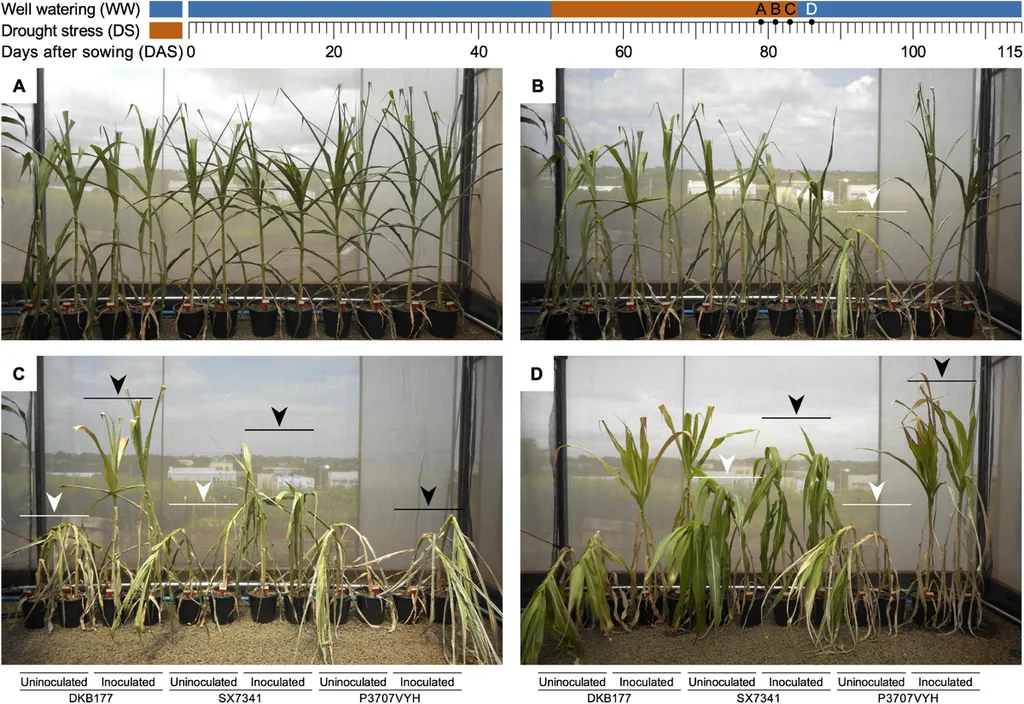In the face of climate change, farmers are grappling with increasingly frequent and severe droughts, which threaten the productivity of vital crops like maize. A recent study published in *Frontiers in Plant Science* offers a promising solution: seed priming with plant-based biostimulants derived from agricultural waste. The research, led by Hisham Wazeer of the Department of Biology and Biotechnology ‘L. Spallanzani’ at the University of Pavia, Italy, demonstrates that this approach can enhance drought tolerance in maize, potentially revolutionizing sustainable agriculture.
Maize, a staple crop globally, is particularly sensitive to water deficits. While much research has focused on improving drought tolerance during the plant’s vegetative and reproductive stages, the effects of drought on seed germination have been less explored. This gap is critical, as early-stage resilience can set the foundation for a plant’s ability to withstand stress throughout its lifecycle.
The study evaluated 26 Italian maize genotypes, applying biostimulants made from red chicory and cauliflower waste extracts as seed priming agents. Over a 14-day period, researchers monitored germination performance under drought conditions, assessing parameters such as germination percentage, speed, seedling growth, and stress tolerance index. They also quantified reactive oxygen species (ROS) accumulation in the seeds and analyzed the expression of genes involved in ROS homeostasis and drought response.
The results were striking. “We observed genotype-dependent responses to drought, which underscores the importance of genetic diversity in crop resilience,” Wazeer explained. “Moreover, priming treatments significantly enhanced both drought tolerance and germination performance in several maize genotypes.” This finding suggests that seed priming with plant-based biostimulants could be a game-changer for farmers, offering a sustainable and cost-effective way to improve crop resilience.
The commercial implications of this research are substantial. As the agriculture sector seeks to reduce its reliance on synthetic fertilizers and adopt more sustainable practices, plant-based biostimulants present an attractive alternative. By leveraging agricultural waste, farmers can not only enhance crop resilience but also contribute to a circular bioeconomy, where waste is repurposed to create value.
The study also highlights the potential for further research into the genetic mechanisms underlying drought tolerance. As Wazeer noted, “Understanding how different genotypes respond to drought and priming treatments can help breeders develop more resilient maize varieties.” This could lead to the development of new cultivars that are better equipped to withstand the challenges posed by climate change.
In the broader context, this research aligns with the growing trend toward sustainable agriculture and climate-resilient farming practices. By integrating innovative techniques like seed priming with plant-based biostimulants, farmers can enhance productivity while minimizing environmental impact. As the agriculture sector continues to evolve, such strategies will be crucial in ensuring food security and sustainability in the face of a changing climate.
The study, published in *Frontiers in Plant Science* and led by Hisham Wazeer of the Department of Biology and Biotechnology ‘L. Spallanzani’ at the University of Pavia, Italy, offers a glimpse into the future of agriculture—one where sustainability and resilience go hand in hand.

